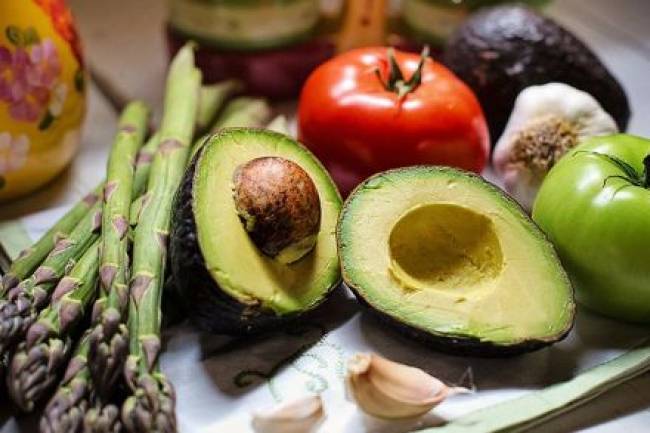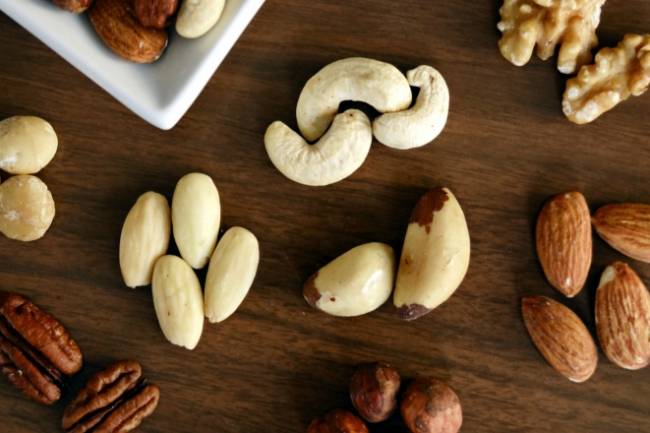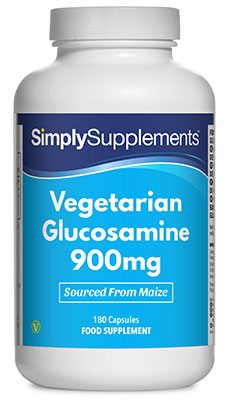Best Supplements for the Over 50s

As we age, it is natural to pay greater attention to our lifestyle choices and question whether we are doing all we can to support good health for the years ahead. One of these elements is of course our diet, as ensuring we are meeting our macronutrient and micronutrient requirements is fundamental for our wellbeing.
Unfortunately, it can become harder to get everything we need through food alone for two key reasons. Firstly, a lot of mature adults see a decline in appetite which can therefore hamper vitamin and mineral intake. Furthermore we begin to lose the efficiency of the digestive system, meaning we absorb less of the goodness that we do manage to consume. For this reason, vitamin and mineral supplements can be very handy. However there are many more supplements that can be of real benefit too.
In this present article, we are going to explore the top ten supplements to support the health of adults over 50. Provided in no particular order, we will cover a range of ingredients that can support the areas of health that need extra attention in the senior years.
Glucosamine
Glucosamine is one of the most popular supplements in the UK and is predominantly used by adults over the age of 50. It has been heavily researched over the years and has been shown to support joint function and comfort. It is thought to work by providing the building blocks of cartilage which helps to prevent excessive breakdown. It is this cartilage breakdown which causes pain, inflammation and restricts movement.
The evidence suggests that glucosamine sulphate may be more beneficial than glucosamine hydrochloride and that 1500mg per day is the dose to aim for. Glucosamine is a safe and well tolerated supplement and early indications that it may not be suitable for diabetics has been refuted numerous times by published investigations. As glucosamine sulphate is sourced from crustaceans, it is however not suitable for those who suffer from a shellfish allergy.
Glucosamine is effective when taken by itself, but it also works particularly well alongside other ingredients. Chondroitin is the well-known perfect partner, as many research studies have used 1200mg of chondroitin alongside 1500mg of glucosamine to great effect. However turmeric, rosehip, green-lipped mussels, MSM, collagen, hyaluronic acid and ginger are all complementary ingredients too.
Lutein
All of our 5 senses are important and vision is certainly no exception. Lutein is a carotenoid that is naturally found in a variety of foods such as eggs and leafy greens like kale, spinach and broccoli. It is also found in the body, where it is concentrated in particularly high amounts in the eye. Lutein has a key role in the macular, where it acts as a filter to protect the eye from bright light. Because of its eye health-maintaining benefits, a diet rich in lutein has been shown to slow and even prevent macular degeneration – a leading cause of blindness.
Aside from a diet that contains eggs and is rich in green vegetables, a lutein supplement is likely necessary to achieve 20-50mg of lutein per day which is a dose that has shown to be beneficial. There may also be further benefits from pairing it with ingredients such as zeaxanthin and essential micronutrients like zinc and vitamins A, C and E. As lutein is found in an array of foods and is an important functional ingredient within the body it should come as no surprise that it’s safe and well tolerated.
Cod Liver Oil
A classic supplement that we could simply not leave out from this list, cod liver oil is a nutritional powerhouse that many older adults will remember (perhaps not that fondly!) from their childhood. Cod liver oil is a fabulous source of long chain omega 3 fatty acids known as EPA and DHA. According to the European Food Safety Authority (EFSA), we should be aiming for 250mg of each on average every day. This dose has been proven to help maintain heart health, brain function and vision; three areas of health that we can all agree are important for mature adults to look after.
Aside from its omega 3 content, cod liver oil is seen as a ‘natural multivitamin’ given its rich concentrations of vitamins A & D. Vitamin A is an essential nutrient that is known to support immune function, vision, skin health and antioxidant status. Vitamin D is a nutrient which is also required for a strong immune system, but its biggest role is in bone and muscle function. This is because sufficient vitamin D levels are crucial for the absorption of calcium and phosphorus, two minerals which are really important for our skeleton.
As roughly a third of all people in the UK are deficient in vitamin D at certain times of the year, a supplement which provides this nutrient is highly valuable. Not to mention, supplemental vitamin D is recommended for all adults from September to April and in certain people all year round.
Ginkgo Biloba
If ginkgo biloba is not the most widely used botanical in the world, it’s certainly in the top few. Ginkgo biloba supplements have been heavily researched and its benefits are really tailored towards mature adults. This is because it has been shown time and time again to maintain brain function in healthy adults, but also to slow cognitive decline in those with Dementia. Aside from this, ginkgo biloba can also aid mental health, vision and intermittent claudication; a condition which affects blood flow to the leg. Ginkgo biloba contains rich phytochemicals which helps to improve circulation and this is known to be the reason behind its benefits.
When searching for a ginkgo biloba supplement make sure you select a leaf extract which is standardised to contain 24% ginkgolides and 6% terpene lactones. You also want to aim for 120-240mg per day, given that this range has been used almost exclusively in the scientific trials.
Plant Sterols
It has been well documented that almost 40% of adults in the UK have high cholesterol, a condition which is a known risk factor for cardiovascular disease. One supplement which is authorised by EFSA for cholesterol reduction is plant sterols. Consuming plant sterols have been shown consistently that they can reduce cholesterol levels by up to 12.5% in as little as 14 to 21 days. This is down to the fact that their make-up is very similar to that of cholesterol itself and it competes for absorption in the digestive system. This means that we absorb less cholesterol and this results in lower levels in the blood, a real positive for our heart.
It is known that people can maintain healthy blood cholesterol levels with 0.8g of plant sterols per day. However, 2.5-3g per day is needed to see a meaningful reduction. Plant sterols can be found naturally in a wide variety of foods such as fruits, vegetables, nuts, seeds, pulses and wholegrains, but in a much lower quantity than a dedicated plant sterols supplement. For example, you would need to eat 32 apples to obtain the same amount of plant sterols as in one tablet of our formula (800mg).
However it must be said that plant-based foods do contain nutrients beside plant sterols that are also beneficial for cholesterol control, so certainly don’t overlook them.
Multivitamins
Multivitamins are a hassle-free and cost-effective way of ensuring that all micronutrient requirements are being met. As we touched on in the introduction, older adults are vulnerable to vitamin and mineral deficiencies due to a decreased appetite and food intake, meaning supplementation can be particularly valuable.
There are a variety of different multivitamins to choose from and they can really vary in the length of their ingredients lists’. However we recommend sourcing one that provides nutrients such as selenium and iodine which a high percentage of the population do not get enough of. In addition to those minerals, a multivitamin which provides at least 10 micrograms (400 international units) of vitamin D is something to look for.
Due to tablet sizing constraints, it is very difficult for multivitamins to provide relevant levels of certain ingredients, namely calcium and magnesium. As these are crucial nutrients to support bone and muscle strength, it may be worthwhile to supplement with these on top of a high quality multivitamin.
Whey Protein
Whey protein may strike you as a peculiar choice in our list given it’s associated with younger athletes and gym enthusiasts but hear us out. Another downside to getting older is that the body becomes less efficient at creating muscle tissue from the amino acids we get through our diets. This means that older adults need a relatively higher amount of protein to help maintain muscle compared to their younger counterparts.
Research has shown that for younger adults, 0.8g of protein for every kg of bodyweight is sufficient to maintain muscle mass. So for a 70kg person, this would be 56g per day. However for older adults, 1.2g of protein per kg of body weight is required, meaning a 70kg person would require 84g daily. Muscle wastage, known by scientists as ‘sarcopenia’, is a condition that seriously affects the mobility, independence and life quality of millions of older adults and can be blunted through high protein diets.
As whey protein can easily provide over 25g of protein per serving and is high in all 9 essential amino acids, it’s the perfect choice. Furthermore, calories from drinks are less filling than calories from food, so it generally helps older adults meet their daily caloric needs as well as their protein requirements.
Turmeric
Turmeric has quickly grown to become one of the most popular supplements and for good reason. It has been shown to have a whole host of benefits, from joint health and cognition to blood vessel function and mental wellbeing. The majority of the benefits are known to be down to turmeric’s powerful anti-inflammatory properties that are stimulated from its curcumin content. Turmeric is naturally only around 2-5% curcumin, but cutting edge extraction technology has now made it possible to create supplements that are 95% curcumin.
One thing that has let turmeric down is its naturally low bioavailability, meaning only a small percentage of its goodness is used by the body. However there are ways to greatly increase this such as pairing it with black pepper extract or suspending it in phospholipids, so make sure you look for a high quality supplement which works through one of these methods.
With regards to dosage, a wide range has been used in the literature. Thankfully, even the very high doses have been shown to be safe. For most health benefits though, 200-500mg of curcumin per day seems a good amount to aim for.
Acetyl L-Carnitine
Another supplement that can be of particular benefit to the over 50s is acetyl L-carnitine. L-carnitine is an amino acid which is mainly found in meat and has an important role in turning the food we eat into cellular energy. Acetyl L-carnitine is a superior form of carnitine given it can freely cross the blood-brain barrier. As well as influencing brain energy levels, acetyl L-carnitine can increase acetylcholine levels, a key neurotransmitter that sends chemical messages around the body.
In research studies, acetyl L-carnitine has been shown to reduce fatigue and support cognitive functioning in older adults. These investigations have typically used between 500mg-2000mg daily, a dose which is widely regarded as safe as well as effective.
Garlic
Last but not least is garlic, an ingredient which is almost as well known for its health benefits as it is its culinary punch. Garlic is known in scientific circles for 2 key reasons: heart health and immune function. As well as being able to favourably alter cholesterol profiles, garlic can also significantly reduce blood pressure. This is due to garlic’s ability to influence endothelial function, helping to dilate blood vessels and allow blood to flow more freely.
Looking at the immune system, garlic can increase circulating levels of immune cells such as natural killer cells which help to neutralise bacteria and viruses. This is the reason why multiple studies have shown that regular garlic consumption can reduce the chances of suffering from colds and flu or reducing the length and severity of symptoms if someone does fall ill.
As garlic’s benefits are down to a compound called allicin, make sure to look for a garlic extract supplement standardised to contain at least 2.5% allicin for best benefit.
Summary
Although not exhaustive, we believe this list contains a very good selection of supplements that could be of great benefit to most over 50s. Of course, a healthy diet which contains a wide variety of food is the most important element of any diet, but carefully selected supplements can certainly make up for any shortcomings or can provide ingredients and dosages that is simply not possible through food alone.
If you are struggling to optimise your supplement regime, why not reach out to one of the friendly advisors here at Simply Supplements who are more than happy to help you make the right choices.
Sources:
https://pubmed.ncbi.nlm.nih.gov/10732937/
https://www.ncbi.nlm.nih.gov/pmc/articles/PMC5852824/
https://www.ncbi.nlm.nih.gov/pmc/articles/PMC6164534/#:~:text=Lutein%20is%20a%20carotenoid%20with,of%20blindness%20and%20vision%20impairment.
https://www.ncbi.nlm.nih.gov/pmc/articles/PMC6163911/
https://www.ncbi.nlm.nih.gov/pmc/articles/PMC3679686/
https://www.ncbi.nlm.nih.gov/pmc/articles/PMC7353484/
https://pubmed.ncbi.nlm.nih.gov/17658628/
https://pubmed.ncbi.nlm.nih.gov/31255636/

 Richard
Richard 

























